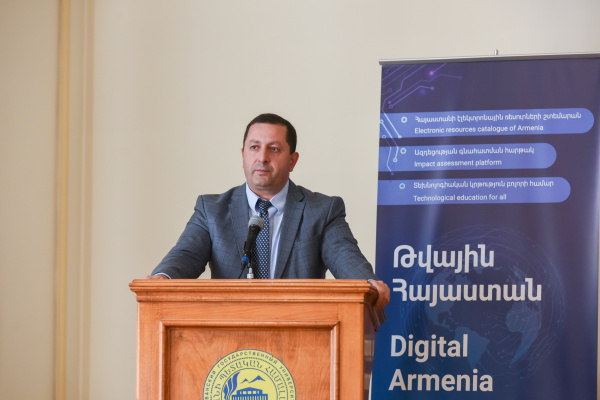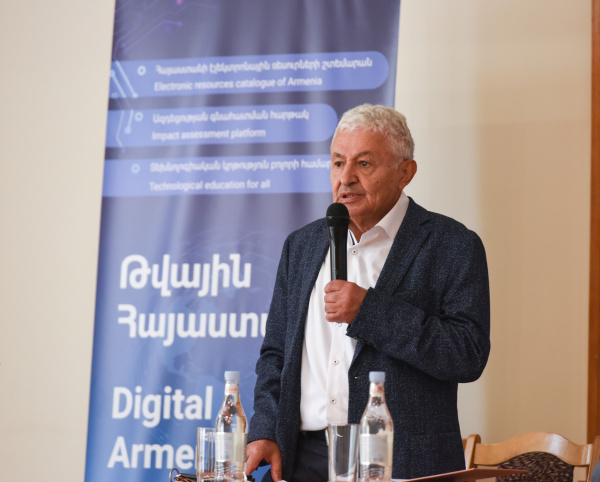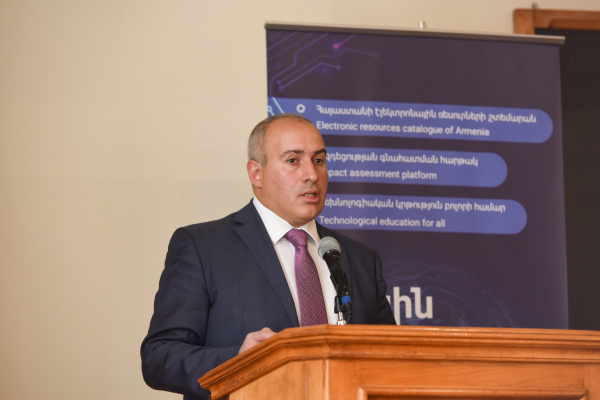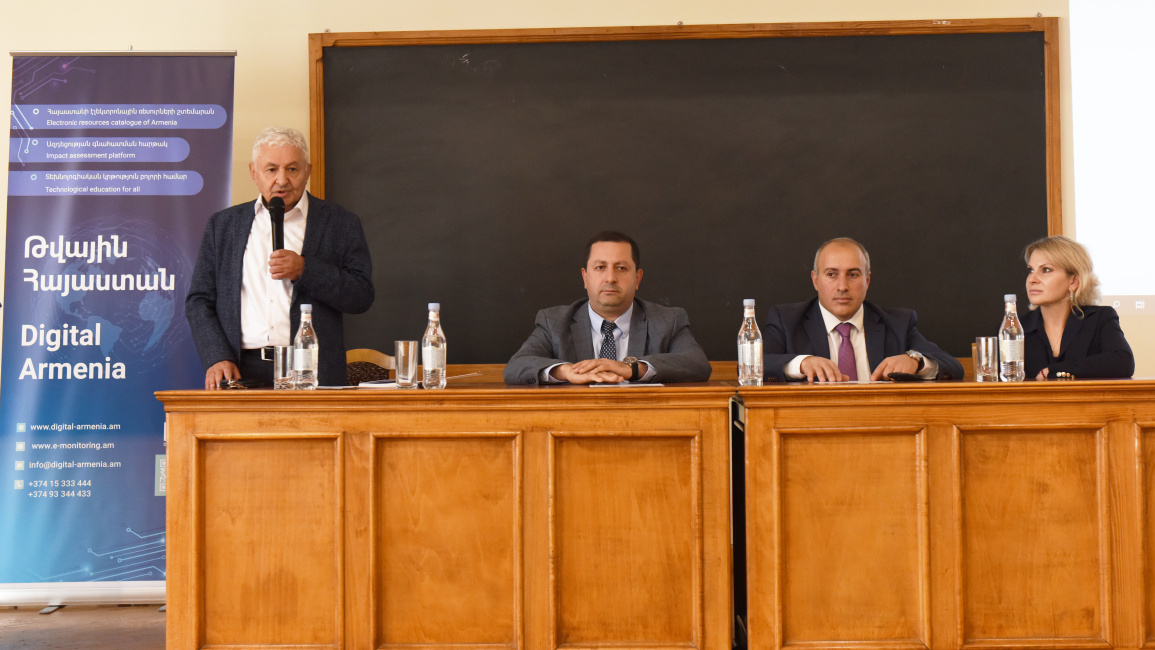On October 22, this year, the YSU Faculty of Economics and Management hosted a workshop titled "Digitization and Development Prospects for Digital Economy", during which new ways of collaboration were discussed.

During the workshop, students were introduced to the current state and developments of digitization and digital transformation, prospects for forming and developing the digital economy, etc.
At the beginning of the workshop, YSU Rector Hovhannes Hovhannisyan spoke about the role of digitization in the modern world and the importance of steps towards the development of the digital economy. The YSU rector pointed out the reforms at YSU in the realm of digitalization, notably mentioning the transition of the YSU email system to the Google platform.

Hayk Sargsyan, Dean of the faculty, emphasized the significance of such events, noting that they serve as a platform for communicating scientific and technical advancements and achievements relevant to the profession to both teaching staff and students.
Referring to the relevance of the workshop’s topic, H. Sargsyan emphasized. "In today's world, embracing the digital economy is essential for progress. This implies the application of the methods, tools and solutions provided by the digital age. The world offers excellent examples of digital economies, and I believe we can create similar models in our country."
The dean of the faculty highlighted that such workshops also contribute to the development of the digital economy. Summing up, he expressed hope that similar events will continuously be held as part of the collaborations with the "Digital Armenia" organization.

President of the "Digital Armenia" organization Suren Krmoyan also highlighted the importance of collaboration with the YSU Faculty of Economics and Management and the workshop organized within its framework. He noted that the faculty plays a crucial role in forming skilled economists and management specialists.
Speaking about the faculty's significant role in the formation and development of the digital economy, S. Krmoyan pointed out. "The state has initiated public administration reforms rooted in digitization and technological progress. In this context, training scientific research personnel within the academic community is crucial, and the faculty’s participation in this process is noteworthy. This will also help the graduates of the faculty in seamlessly integrating into the digital economy and making significant contributions to its development."


